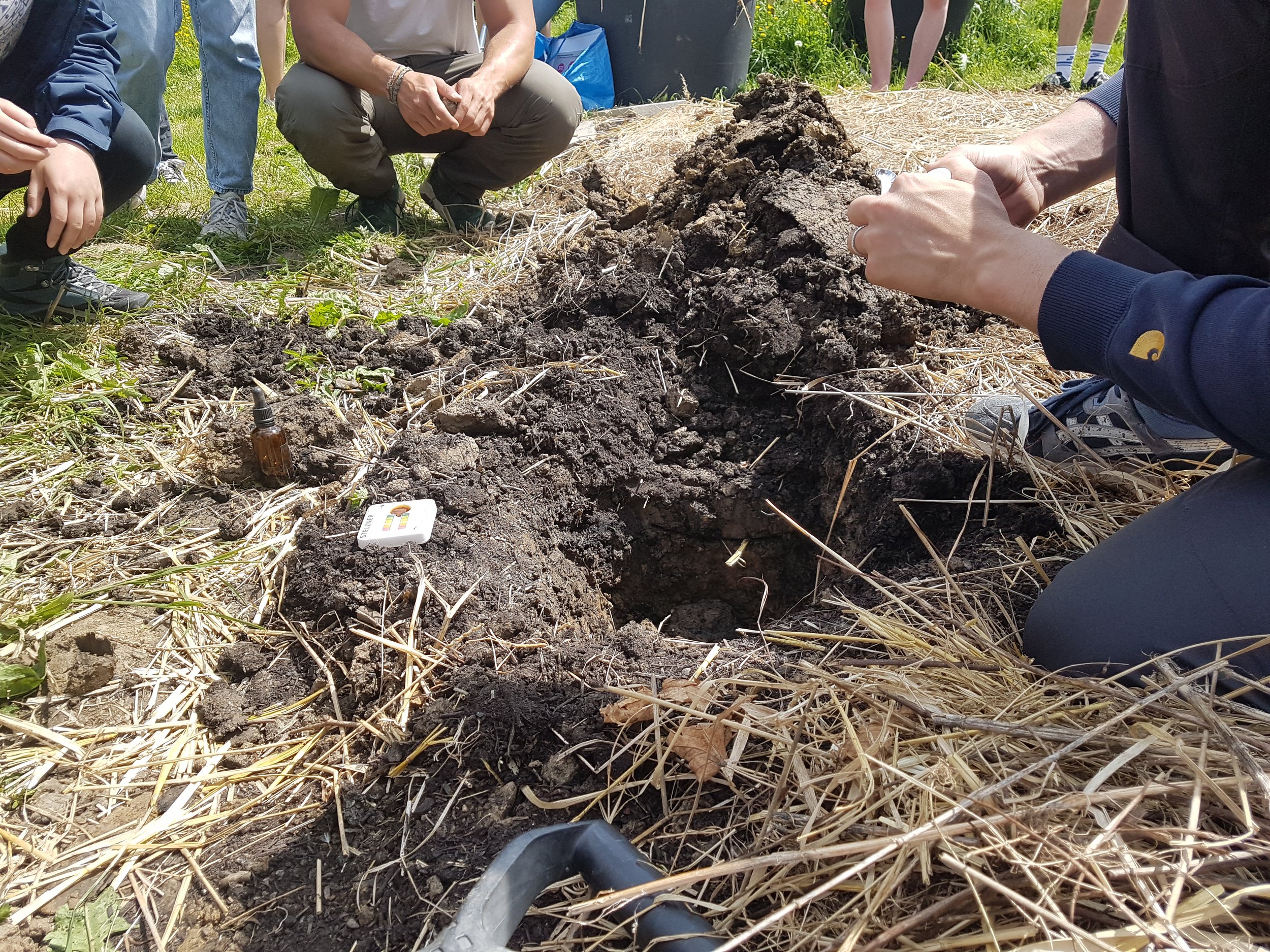Students conduct World Cafe with residents; Photo: Marco Einfeldt
our motivation
Engaging students through inquiry-based teaching
Through our theoretical and practical courses we want to enable students from different disciplines dealing with various ecosystem and landscape contexts to identify interactions between goals of biodiversity protection, climate adaptation, agricultural production and human well-being. We aim to provide students the theoretical and practical tools to promote potential synergies and thus to examine and design sustainable, multifunctional landscapes. We use teaching methods such as ‘traditional’ lectures, flipped classrooms and experientail larning, and research-focused project work. In doing so, we emphasize an integrated view of ecological and social dimensions of ecosystems and landscapes, with a strong focus on urban and agricultural systems.
Teaching @ Technical University of Munich
WINTer SEMESTER
Urban Agriculture & Edible Cities
Monika Egerer
Places of Change – Education for Sustainable Development Outside the Classroom
Theresia Endriß
Monika Egerer
SUMMER SEMESTER
Advanced Concepts and Methods in Urban Ecosystems
Monika Egerer, Mohammad Rahman, Stephan Pauleit
Theresia Endriß
Soil sampling in Campus Ackerdemie; Photo: Stefanie Burger
Highlight: HEF Autumn School 2022
Sustainable food production requires knowledge of the entire system and new approaches and methods. Alternative methods in food production allow cultivation with less negative impact on the environment. In particular, a focus on ecological practices as well as urban production systems are proposed as solutions to current challenges. Considering the whole system allows for increasing resource efficiency (e.g., water, nutrients) and increasing the role of biodiversity in providing ecosystem functions. This transnational summer school with participants from the TUM School of Life Sciences and the Open International University of Human Development in Kiev [https://vmurolen.uu.edu.ua/], will develop approaches for sustainable food production. The goal is an exchange of topics of high social relevance such as sustainable land use, climate change, biodiversity and food safety. Different approaches, challenges and opportunities of sustainable food production will be elaborated and discussed, with a focus on agroecology and urban agriculture with current topics such as agrobiodiversity, polycultures, agroforestry, ecosystem functions and services, sustainable urban agriculture and urban food production. The virtual, English-language format will enable the young scientists in Kiev to continue their studies and network internationally with German and international students, even in the current political situation. In addition to providing substantive, technical training, the Summer School also aims to promote long-term collaboration and exchange. The Summer School is co-organized by the Hans Eisenmann Forum for Agricultural Sciences (HEF) at the TUM and is funded by the Joachim Herz Stiftung.
Place & Time: Digital (Zoom & Youtube Stream), October 10-14; 9am-4pm ; Program: Find the full schedule here.
Highlight: Pilot Project - Campus Ackerdemie 2022
Education for Sustainable Development - Campus Gardens As GReen lecture halls and living labs
“Lectures” in the hoop house; Photo: Stefanie Burger
Learning how to teach in the field; Photo: Stefanie Burger
The CampusAckerdemie is a pilot project of "Acker e.V." in which 11 universities across Germany participated in summer 2022. Acker e.V. works with the goal to increase the appreciation for food in society and to counteract the loss of knowledge and competence in the area of food production, unhealthy nutrition and food waste. In CampusAckerdemie, students collectively learned how education for sustainable development [ESD] can be implemented in the context of a learning and teaching garden. The seminar aimed to provide students – considered future professionals and researchers from the fields of land use to food management – practical acquisition of skills in ecological gardening to introduction to didactic methods for critical nutrition education. The seminar was coordinated by UPE and implemented in collaboration with the TUM Green Office Weihenstephan, the HSWT Faculty of Horticulture and Food Technology, as well as with the campus garden "Knosporus" that grows vegetables in ecological and sustainable way possible.
Highlight: Tiny Forest Project 2021
Tiny Forest, Great Diversity; Planning a "Winzl-Wald" for Hallbergmoos
In the summer semester of 2021, the chairs of Urban Productive Ecosystems and Forest and Environmental Policy jointly offered a practical project seminar on the highly-discussed urban greening concept of "Tiny Forests" for the fourth semester students of the bachelor's degree program in Forest Sciences and Resource Management. A "Tiny Forest" is a forest the size of a tennis court, which is supposed to provide recreation in urban areas with great biodiversity and green ambience. It proposes benefits to biodiversity, both in terms of plants and animals, through compact planting design that creates habitat for a variety of tree, shrub and insect species. But a "Tiny Forest" also has many advantages for humans; for example, the microclimate created cools the environment, provides shade, and brings some nature back into the cityscape. In this seminar, students explored the potential of Tiny Forests as a new greening approach for urban spaces. In close cooperation with the municipality of Hallbergmoos the students developed a concept for the integration and development of such a forest area in the concrete socio-ecological context of the municipality. Authors: Lasse Schimpf, Tim Horsch, Jakob Klotz, Jonas Herr





